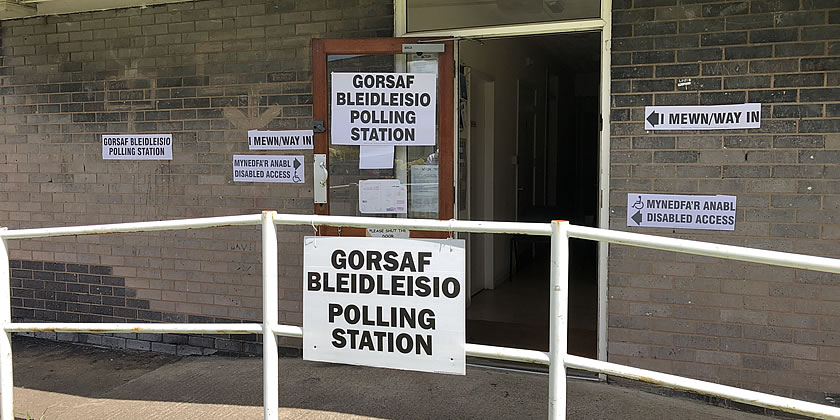New voting changes to affect next months Police and Crime Commissioner elections in Wales

The upcoming Police and Crime Commissioner (PCC) elections on May 2, 2024, will mark a significant change for Welsh voters, who will be required to show photographic identification at polling stations for the first time.
Understanding the Role of Police and Crime Commissioners Introduced by the Police Reform and Social Responsibility Act 2011, PCCs play a crucial role in the governance of police forces in Wales and England. They are responsible for setting police budgets, engaging with communities, and ensuring the efficiency of local policing. Each of Wales’ four police areas—North Wales, Dyfed-Powys, Gwent, and South Wales—will elect one PCC.
In North Wales four candidates have put themselves forward to become the region’s next PCC. These are:
- Andy Dunbobbin – Labour and Co-operative Party
- Ann Griffith – Plaid Cymru
- Brian Jones – Welsh Conservative Party
- Richard Marbrow – Welsh Liberal Democrats
Changes Brought by the Elections Act 2022 The Elections Act 2022 has ushered in pivotal changes, particularly affecting how PCCs are elected. Shifting from the Supplementary Vote system to First-Past-the-Post, the same method used in Commons elections, this legislation also mandates the presentation of photo ID at the polls. This change aims to bolster voter confidence by mitigating electoral fraud risks.
The Controversy Surrounding Voter ID This policy shift has sparked considerable debate. While the UK Government advocates for the change citing increased voter confidence following pilot schemes during local elections in England in 2018 and 2019, the Welsh Government and several advocacy groups have expressed concerns. They argue that the requirement could disenfranchise vulnerable groups, such as the unemployed and people with disabilities, who are less likely to possess the necessary identification.
Impact of Voter ID in England Voter ID was first implemented in England during the local elections of May 2023. Reports from the Electoral Commission highlighted that some groups found it challenging to comply with the new regulations, suggesting a need for further adjustments to enhance accessibility.
Concerns Over Voter Turnout Some experts fear that the introduction of voter ID could negatively affect voter turnout. Professor Petra Schleiter from Oxford University has noted a discernible decline in participation due to the ID requirements, estimating a drop in turnout by up to 5.5% in affected areas.
It is not yet clear what impact the requirement to bring photo ID to polling stations will have on elections in Wales. The PCC elections in May will likely prove a useful source of data which will help our understanding of the policy implications.










